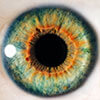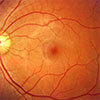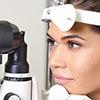Philosophy
As a reflection of your practice, Northwest Eye Surgeons values a personalized approach to each and every patient. Patients will meet their surgeon at the time of the consultation prior to surgery, and be given the opportunity to have questions answered thoroughly.
This practice is common in other medical and surgical specialties, and is recognized by the American Academy of Ophthalmology, the American Society of Cataract and Refractive Surgery, the American Academy of Optometry and the American Optometric Association as acceptable care in specific circumstances. This practice is also endorsed by insurance carriers and the Society of Excellence in Eye Care. We all agree that co-management in an atmosphere of mutual trust, shared learning, and constant communication, can be the most successful way to optimize patient care.
Communication is our priority. Our joint responsibility to your patients is to provide the best service and the best outcomes available. Together, we can accomplish this through frequent communication and coordinated care. Your patients will appreciate knowing that their family eye care provider and surgeon are working together to provide seamless care for their eyes and visual well-being.
A consistent surgical experience begins with the co-managing doctor’s awareness of the surgical consultation process, and the options that a patient may hear about upon referral to Northwest Eye Surgeons.
The roles of the primary eye care provider with surgical co-management are the following:
- To select the appropriate candidate for cataract or refractive surgery
- To inform, to educate and to counsel patients, including whether you are willing to co-manage their post-operative care.
- To discuss and simulate monovision pre-operatively with the use of a trial lens or contact lens when this option is considered
- To perform manifest and cycloplegic refractions prior to the procedure as appropriate
- To monitor patients at specific and suitable post-operative intervals after the surgery and to communicate findings to the surgeon
- To continue post-surgical care beyond the 90-day global period and report to the surgeon any findings related to surgery (the OD has no obligation for care beyond 90 days)
- To assist patients with their post-operative vision needs, including refractive corrections and continued ocular health assessments









